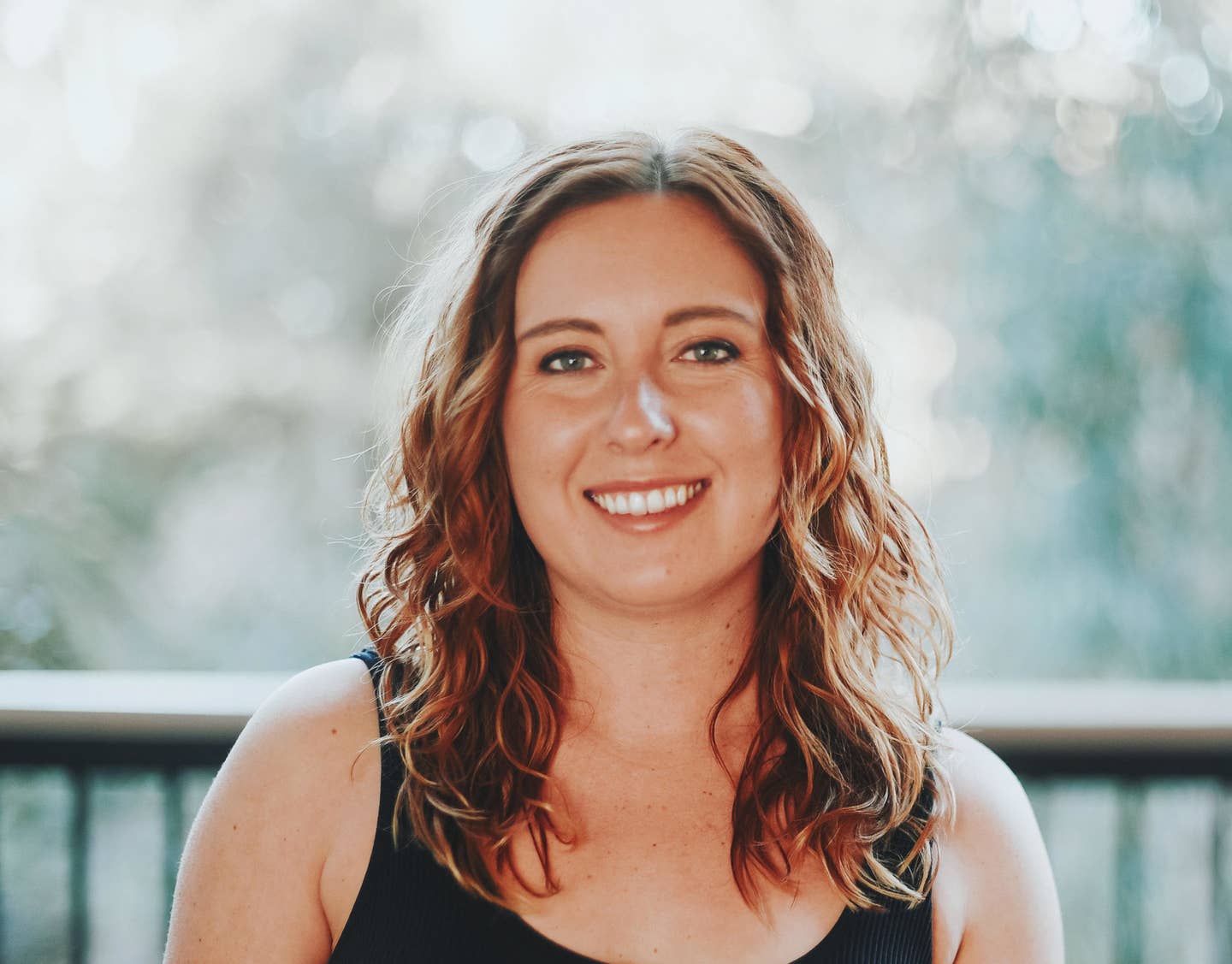
What Is Lifestyle Medicine?
The field of lifestyle medicine is rapidly making its way into mainstream conversations around chronic disease, diet, and sustainable patient care. But even as more doctors incorporate this holistic approach to medical care, many of us are left wondering, what the heck is lifestyle medicine, anyway?
Fortunately, we’ve got the answers. Forks Over Knives spoke with two leading voices on lifestyle medicine in the United States. Scott Stoll, MD, is a practicing physician and co-founder of The Plantrician Project, an organization that aims to educate health care providers about using food as medicine. Susan Benigas is the executive director of the American College of Lifestyle Medicine (ACLM), the largest organization of U.S. health care professionals who are committed to preventing, treating, and reversing disease with the help of lifestyle changes. Let’s take a look at some of the most commonly asked questions about this expanding medical field.
Skip to the section you’re most interested in:
- What Is Lifestyle Medicine?
- Why Don’t More Doctors Incorporate Nutrition and Lifestyle Strategies Into Patient Treatment Plans?
- How Does a Whole-Food, Plant-Based Diet Fit Into the Lifestyle Medicine Puzzle?
- How Has the Medical Community Responded to the Rise of Lifestyle Medicine?
- What Advantages Do Lifestyle Changes Offer Over Prescription Drugs?
- Who Can Benefit From Lifestyle Medicine?
- What Has Caused the Increased Interest in Lifestyle Medicine Over the Last Several Years?
- How Is Lifestyle Medicine Connected to Environmental Sustainability?
What Is Lifestyle Medicine?
“Lifestyle medicine is an evidence-based approach that integrates lifestyle factors—including a whole-food, plant-based diet as the centerpiece—into patient care,” explained Stoll. “The goal is to prevent, suspend, and reverse diseases that are directly related to lifestyle choices.”
While traditional Western allopathic medicine focuses heavily on disease management, lifestyle medicine ultimately aims to eradicate the root cause of disease. These two styles of medicine—allopathic and lifestyle—ideally work hand-in-hand, and most doctors who practice lifestyle medicine use it as a supplement to their traditional training.
Benigas breaks down lifestyle medicine into six key pillars: One: a whole-food, plant-predominant diet. Two: regular physical activity. Three: stress management. Four: restorative sleep. Five: the avoidance of risky substances. And six: positive social connections.
While nutrition is typically the largest component of lifestyle medicine, the other five pillars target important areas of life that have been scientifically proven to impact our health. A physician practicing lifestyle medicine may begin by prescribing a change in diet, but if the patient is lacking quality sleep and is constantly stressed out by their job, a more robust treatment plan would be created to address the impact of anxiety and insomnia on that person’s overall well-being.
Why Don’t More Doctors Incorporate Nutrition and Lifestyle Strategies into Patient Treatment Plans?
If this is your first time hearing about lifestyle medicine, you’re not alone. According to Stoll, most medical students receive fewer than 25 hours of nutrition training and only 20 percent of medical schools in the U.S. have a required nutrition course. The stats get even worse when new doctors go into residency: In most cases, there are zero requirements for young physicians to learn about the benefits of nutrition as they take on real-life patients.
“When we look at the number-one cause of preventable death in the world, it’s diet. Nearly 11 million deaths globally are caused by poor dietary choices every year,” Stoll says. “We have this real cognitive dissonance in Western medicine where everybody recognizes that obesity and lifestyle choices are a problem, but there's no education to address that. There was an interesting study done where first-year medical students were surveyed about whether they believed nutrition was important for treating patients. At least 75 percent of all the students said that it was. By the end of their second year of medical school, that number was nearly zero. So our education system actually trains out the value of diet and nutrition as medicine.”
How Does a Whole-Food, Plant-Based Diet Fit into the Lifestyle Medicine Puzzle?
“We're grateful for modern medicine, and it absolutely has its place in a treatment plan,” said Benigas. “But medications don't cure the disease, right? They try to help slow the progression or mask symptoms. What the American College of Lifestyle Medicine advocates for is to first attempt to identify and eradicate the root cause of the disease. There may be a need for medications as well, but it’s really about committing to a clinical outcome of health restoration and a de-escalation of medication use so that our patients can live disease-free.”
How Has the Medical Community Responded to the Rise of Lifestyle Medicine?
As executive director of ACLM, Benigas says she has witnessed enormous growth in this sector of medicine over the past decade.
“When I joined ACLM in the spring of 2014, it had fewer than 400 members,” she explains. “Flash-forward to 2021, and ACLM is close to breaking the 7,000 mark which represents a near 1,600 percent growth! ACLM is recognized by many as the nation’s fastest growing medical professional association.”
The ever-growing body of evidence that confirms the benefits of a whole-food, plant-based diet spurred the formation of many educational organizations, including Stoll’s Plantrician Project, which is one of the most significant resources for lifefstyle healthcare professionals.
“We want to provide physicians with the best evidence-based information on utilizing a whole-food, plant-based diet as an intervention for the treatment of lifestyle diseases,” Stoll explains. “The goal of The Plantrician Project is to educate, inspire, inform, and equip health care providers with the information and tools and resources that they need to restore the lost quality of life for their patients. Over the last few years, our annual conferences have grown to about 12,000 healthcare providers from 26 countries.”
What Advantages Do Lifestyle Changes Offer Over Prescription Drugs?
It’s important to recognize that lifestyle medicine is designed to complement traditional allopathic approaches, not replace them. Think of lifestyle medicine as the first line of defense against the progression of a disease, while medication, surgery, and other treatments are used when a disease resists lifestyle changes. Because lifestyle interventions are largely free of side effects, lifestyle doctors can use them to prevent unnecessary complications for their patients that can arise with more aggressive treatments.
After several decades as a practicing physician, Stoll has worked with countless patients who were able to discontinue their medications or cancel surgeries because a healthy diet had resolved their symptoms.
“I treated a young woman in her early 30s who struggled with infertility, hyperthyroidism, general fatigue, depression, and pain throughout her entire body,” he says. “When she arrived at my office she said, ‘I don't know how I'm gonna get up and keep going to support my family.’ I helped her get set up with a whole-food, plant-based diet, and even after a week she was starting to have some energy, mental clarity, and some of the constant pain had dissipated. A year later all of her disease conditions had fully resolved and she required no further medication.”
Who Can Benefit From Lifestyle Medicine?
Long story short—everyone. While many assume that a change in diet is only necessary for people battling heart disease, diabetes, or other chronic illnesses, approaching your health from the perspective of lifestyle medicine can drastically reduce the likelihood of developing severe diseases later in life.
“Over 60 percent of all American adults now have at least one chronic condition, and sadly over 40 percent of children have two or more chronic conditions,” Benigas says. “When we look at people who apply to join our armed forces, 70 percent of applicants can’t pass the physical examination. So this isn't just an issue that’s related to our elder population or to those already struggling with a life-threatening disease. It’s something that desperately needs to be addressed for all ages, because chronic illness is something that can impact us from our mother's womb all the way through the aging process.”
What Has Caused the Increased Interest in Lifestyle Medicine Over the Last Several Years?
“I think there are several factors at play,” Benigas says. “One, our medical professionals are awakening to the fact that the ‘diagnose and manage’ approach to health care is unsustainable, nor is it in the best interest of their patients. Two, there is so much research that overwhelmingly supports the efficacy of evidence-based therapeutic lifestyle intervention to treat, reverse, and prevent chronic disease and autoimmune conditions. And third, lifestyle medicine reignites the passion many of our physicians cited as the reason they first went into medicine. When you’re truly educating and equipping your patients with knowledge that will help them reach the end goal of health restoration, it really brings back that joy of being a healer.”
How Is Lifestyle Medicine Connected to Environmental Sustainability?
It’s clear that lifestyle medicine can radically benefit our personal health—but what about the health of the planet? It turns out that what’s good for our bodies is also good for the environment. In 2018 the largest study ever done on the environmental impact of food supply was published in Science magazine. It looked primarily at the use of farmland in more than 100 countries and found that 80 percent of our active farmland is used to produce animal-based foods, despite those products supplying only 18 percent of our total calorie intake. Additionally, those farmlands were responsible for more than 50 percent of greenhouse gas emissions.
“I think it’s important to have a mindset shift from being an owner of the land to being a steward of the land,” Stoll says. “A steward looks at optimizing the current circumstances so we can regenerate and renew resources for future generations. The world’s leading scientists are now recognizing that without a transition to a whole-food, plant-based plate, we will never be able to stabilize climate change. What's exciting is that just as a change in diet can regenerate a human body in a relatively short period of time, it can do the same with the Earth.”
If you’re curious to learn more about lifestyle medicine, the American College of Lifestyle Medicine has a wealth of resources on their website that are created for both physicians and patients to explore. The Plantrician Project also features educational literature, book recommendations, event information, and a service that helps you locate a plant-based doctor near you.
Free Download
Free 5-day meal plan!
Get a taste for healthy, fuss-free meal planning with this free five-day meal plan from Forks Meal Planner!
By providing your email address, you consent to receive newsletter emails from Forks Over Knives. We value your privacy and will keep your email address safe. You may unsubscribe from our emails at any time.

About the Author

About the Author
Megan Edwards
Join our mailing list
Get free recipes and the latest info on living a happy, healthy plant-based lifestyle.
By providing your email address, you consent to receive newsletter emails from Forks Over Knives. We value your privacy and will keep your email address safe. You may unsubscribe from our emails at any time.
